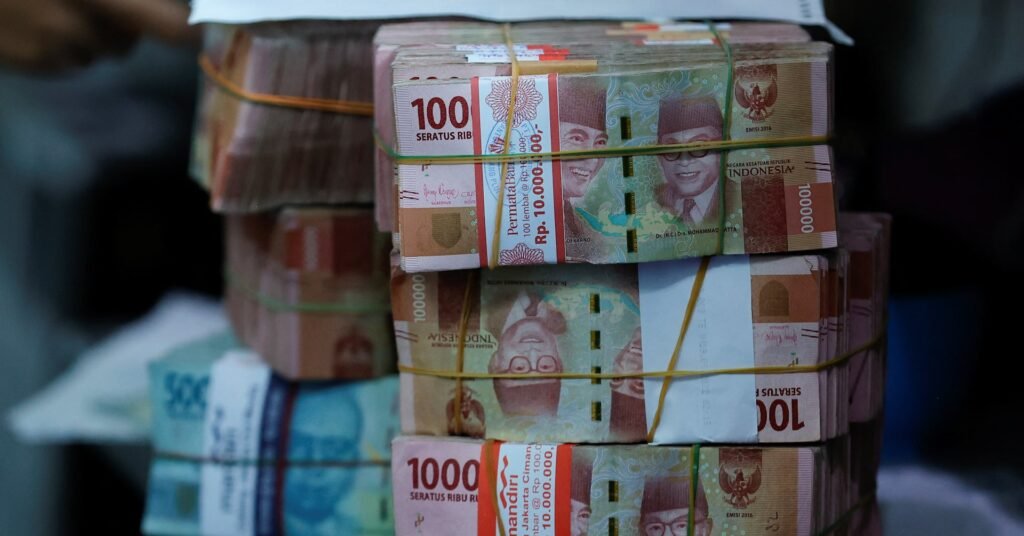April 4 (Reuters) – Investors raised short positions on emerging Asian currencies, with bearish bets on the Indonesian rupiah jumping sharply, as the U.S. dollar remained resilient amid uncertainty over the timeline of the Federal Reserve’s interest rate cuts, a Reuters poll showed on Thursday.
Short positions on the Indonesian rupiah strengthened to their highest since Nov. 2, while those on the Thai baht jumped to their highest since October 2022, according to a fortnightly poll of 11 analysts.
“Ahead of the non-farm payrolls data on Friday, we believe there continues to be USD buying bias in the FX market,” said Ryota Abe, an economist with Sumitomo Mitsui Banking Corp.
“Under the circumstances, there are few incentives for traders to buy Asian currencies,” he added.
With an imminent move towards the psychological 16,000-level, analysts believe that a rate hike from Bank Indonesia may not be out of the cards.
“Speculation is that a one-sided depreciating bias in the currency might revive rate hike bets, akin to the one-off move in October 2023,” Radhika Rao, senior economist at DBS said in a note.
Moreover, the baht has come under pressure due to a softer growth in Thailand’s tourism-reliant economy, a dividend payout season for foreign investors, and dissenting opinions over rate cuts between the government and central bank, multiple analysts said.
Bearish positions on the Taiwan dollar and the South Korean won were a notch higher, reaching their highest since early November.
Poon Panichpibool, a markets strategist with Krung Thai Bank, said he expects the Taiwan dollar and the South Korean won to be “quite volatile should tech stocks come under correction, which could happen as these stocks have been rising significantly lately”.
Meanwhile, investors who had been slightly bullish on the Indian rupee so far this year, have now pared back their bets to turn neutral owing to concerns over the Fed’s stance on interest rates.
The Asian currency positioning poll is focused on what analysts and fund managers believe are the current market positions in nine Asian emerging market currencies: the Chinese yuan, South Korean won, Singapore dollar, Indonesian rupiah, Taiwan dollar, Indian rupee, Philippine peso, Malaysian ringgit and the Thai baht.
The poll uses estimates of net long or short positions on a scale of minus 3 to plus 3. A score of plus 3 indicates the market is significantly long on U.S. dollars.
The figures include positions held through non-deliverable forwards (NDFs).
The survey findings are provided below (positions in U.S. dollar versus each currency):
Sign up here.
Reporting by Archishma Iyer in Bengaluru; Editing by Varun H K
Our Standards: The Thomson Reuters Trust Principles.







